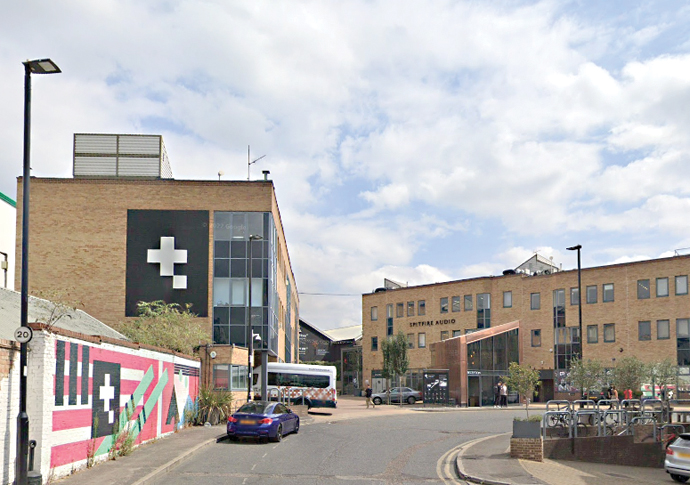
How the redeveloped Vale Royal building could look
WHILE Clerkenwell is widely recognised as the centre of the capital’s design and “creative” industries, two planning applications considered by the Town Hall reveal the face of industry is changing in the north of the borough, too.
Islington’s planning committee was considering two proposals by two separate property developers to replace industrial buildings in Caledonian ward with “flexible workspace” last night (Thursday).
Both sites sit within the Vale Royal and Brewery Road Locally Significant Industrial Site (LSIS), an area of warehouses and light industrial buildings on the borderlands of Camden and Islington.
Developer Noble House Properties Ltd proposed the redevelopment of Blundell Street’s tool hire Brandon Hire Station, near Caledonian Road.
Meanwhile, Tileyard Studios is set to expand into the Vale Royal site – close to the Egg nightclub.
According to planning documents, both companies wanted to turn these industrial sites into “flexible workspace”.
But at the planning meeting, the Blundell Street application was rejected, while Tileyard’s application was deferred until further clarity on affordable office space can be provided.

Tileyard Studios
This is the latest twist in the long history of the LSIS.
The industrial estate first came into being with the construction of the Regent’s Canal and the railways in the 1800s.
Goods yards popped up, clustering around the north of the canal, while large warehouses shot up along the railway lines.
In the mid-1800s, the Metropolitan Cattle Market opened as an alternative to the ancient market at Smithfield, in what is today Caledonian Park. An Italianate clock tower was built in the 1850s as the market’s centrepiece, and Grade II-listed railings from the market still stand today.
Over the following century this industrialisation continued as new warehouses and workshops emerged.
The cattle market closed in 1939 and by 1950 pockets of post-war housing like York Way Close began to spring up, followed by Maiden Lane and other large housing estates.
In recent years this industrial estate has quietly modernised, becoming home to a series of music studios, workshops, offices and co-working space, alongside more traditional depots, food manufacturing and distribution warehouses.
Tileyard Studios owns 150,000 square feet of space in the estate, housing more than 150 businesses, including music studios where Noel Gallagher, Mark Ronson and The Prodigy have recorded, along with and offices housing Apple Music Radio, and the record label Marathon Artists.